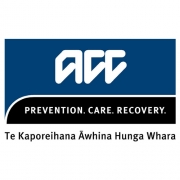Brain Injury New Zealand Calls for ACC to Increase Travel and Accommodation Assistance
Update: 29/05/2024 Response From Minister Hon Matt Doocey: Response letter – Lync Aronson
Brain Injury New Zealand, the national body representing 14 regional organisations across the country, is advocating for the Accident Compensation Corporation (ACC) to increase travel and accommodation assistance rates for those who need to travel to access essential healthcare services following a brain injury.
In a letter addressed to the Honourable Matt Doocey, Minister for ACC and Associate Minister of Manatū Hauora Ministry of Health, Brain Injury New Zealand President Lync Aronson highlighted the financial difficulties faced by individuals who need to travel to access healthcare services following a brain injury. “As Minister for ACC, as well as Associate Minister of Manatū Hauora Ministry of Health, we are sure that you are aware of the financial difficulties people face when they need to travel, potentially over significant distances, to access healthcare services following brain injury,” Aronson stated.
The letter also commended the recent increases in travel assistance rates by Manatū Hauora, the Ministry of Health. “We applaud the recent increases by the Ministry of Health, whereby effective from 01 April 2024, reimbursements have increased to 34 cents per kilometre, and accommodation reimbursement to $140 per night. This increased financial assistance will allow more people to access care and support that they are entitled to receive and will lead to long-term benefits for many people with brain injury and their families.”
However, ACC’s travel reimbursement rates have not been updated since 2009, despite the ongoing cost-of-living crisis and significant increases in the cost of fuel and accommodation. “Clearly, current ACC mileage and accommodation rates do not reflect actual costs incurred by people and their families when accessing essential healthcare services. Inadequate rates of travel and accommodation reimbursement by ACC create significant barriers to accessing support following injury, especially for low-income families and people living in rural areas,” Aronson emphasized.
Brain Injury New Zealand strongly believes that adequate financial assistance can be the difference between someone accessing essential healthcare following an injury or going without the support they need and are entitled to receive. “Brain Injury New Zealand urges ACC to increase travel and accommodation rates to at least match the level of Manatū Hauora, to enable all ACC claimants to access essential treatment and support as covered under the ACC legislation,” Aronson stated in the letter.
We are now calling for ACC to take immediate action to address this critical issue. “Can you advise if reimbursement rates for travel and accommodation offered by ACC are on the agenda to be reviewed?” Aronson asked the Minister.
As the national voice for those affected by brain injury, Brain Injury New Zealand will continue to advocate for the rights and needs of this vulnerable population. We urge ACC to ensure that all New Zealanders have access to the care and support they need to recover from a brain injury.
For more information or to support Brain Injury New Zealand’s advocacy efforts, please visit our website at www.brain-injury.nz or contact us at admin.national@brain-injury.org.nz.
View Letter: BINZ ACC travel reimbursements 060524


